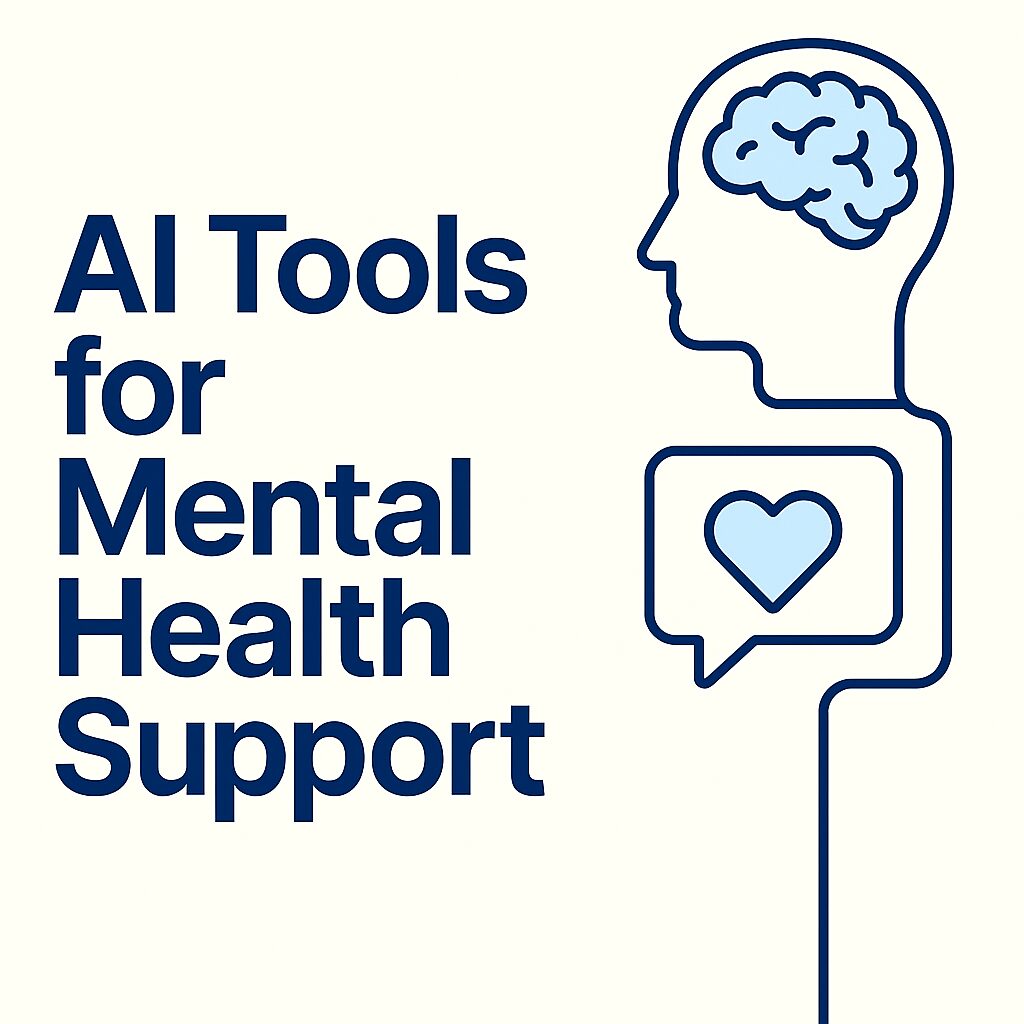Introduction
Mental health is a critical part of overall well-being, and AI-powered solutions are transforming how people access support. AI-driven mental health tools offer personalized guidance, monitor emotional patterns, and provide real-time coping strategies. From AI chatbots to mood-tracking algorithms, these technologies enhance accessibility and reduce barriers to mental health care.
This guide explores how AI supports mental health, structured with SEO-friendly formatting for better visibility and audience engagement.
1. How AI is Revolutionizing Mental Health Care
Traditional mental health resources often face challenges like limited accessibility, high costs, and stigma. AI solutions address these gaps by providing automated support, 24/7 availability, and personalized interventions.
Key Benefits of AI Mental Health Tools
- Instant Emotional Support with AI Chatbots – AI-powered assistants provide real-time conversations.
- Mood Analysis & Emotion Tracking – AI detects emotional shifts and suggests coping mechanisms.
- Guided Meditation & Mindfulness Programs – AI adapts relaxation techniques based on user preferences.
- Predictive Mental Health Insights – AI anticipates emotional distress based on behavioral data.
- Personalized Therapy Recommendations – AI suggests resources and professionals suited to individual needs.
AI-powered mental health tools expand support options while complementing traditional therapy.
2. Core AI Technologies in Mental Health Support
AI-driven wellness platforms rely on machine learning, NLP, and predictive modeling to analyze emotional states and provide meaningful recommendations.
Essential AI Technologies for Mental Health Solutions
- Natural Language Processing (NLP) for AI Chatbots – AI understands user messages and responds with therapeutic insights.
- Sentiment Analysis for Emotional Well-Being Tracking – AI evaluates tone and context in conversations.
- Machine Learning for Personalized Therapy Suggestions – AI refines mental health recommendations based on user interactions.
- Speech & Text Recognition for Mood Assessment – AI detects emotional patterns through voice and text analysis.
- AI-Powered Cognitive Behavioral Therapy (CBT) Tools – AI assists users in managing negative thought patterns.
These AI-driven technologies improve emotional awareness and offer adaptive mental health support.
3. Step-by-Step Guide to Developing AI-Powered Mental Health Tools
Creating AI-driven mental health solutions requires structured development, user-centered design, and ethical considerations.
Steps for AI Mental Health Tool Development
- Define Mental Health Goals – Determine whether AI will support stress management, depression tracking, or mindfulness training.
- Gather & Process Mental Health Data – AI models require text-based emotional cues, speech patterns, and behavioral insights.
- Develop AI-Powered Emotional Analysis Algorithms – AI should detect emotional distress and offer real-time coping suggestions.
- Integrate AI with Mental Health Platforms & Apps – AI must sync with mobile apps, therapy networks, and wellness services.
- Enable AI-Powered User Interaction & Customization – AI should adapt to individual emotional needs and support levels.
- Monitor & Optimize AI Accuracy & Ethical Compliance – AI-driven solutions should align with responsible mental health standards.
A structured approach ensures AI-powered mental health tools provide safe, effective, and empathetic support.
4. SEO Optimization for AI Mental Health Platforms
SEO strategies increase visibility and engagement for AI-driven wellness tools.
Best SEO Practices for AI Mental Health Solutions
- Keyword Optimization – Use terms like “AI mental health support,” “therapy chatbots,” and “AI wellness apps.”
- Case Studies & User Insights – Publish reports showcasing AI’s impact on emotional well-being.
- Mobile-Friendly & Secure AI Wellness Apps – Ensure AI-driven tools work across devices while protecting user privacy.
- Collaborations with Psychologists & Mental Health Experts – Strengthen credibility through professional partnerships.
- Optimized Metadata & SEO Tagging – Improve rankings using structured headings and search-friendly descriptions.
SEO-focused strategies increase awareness and accessibility for AI-powered mental health platforms.
5. Enhancing AI Mental Health Tools for Long-Term Impact
AI-driven mental health support requires ongoing improvements to maintain effectiveness and ethical integrity.
Metrics for AI Mental Health Optimization
- Sentiment Analysis Accuracy & Emotional Tracking Improvements – AI should enhance mood prediction reliability.
- User Engagement & Therapy Session Effectiveness – AI must ensure meaningful interactions with users.
- Mental Health Resource Integration & Referral Systems – AI should connect users with professional therapists when needed.
- Privacy & Ethical Compliance Standards – AI mental health tools must follow data protection laws and responsible AI ethics.
- Multi-Language & Accessibility Features – AI should expand usability for global audiences.
Regular enhancements ensure AI-powered mental health platforms remain effective, ethical, and accessible.
Conclusion
AI-powered mental health tools enhance emotional support, therapy accessibility, and self-care automation, making wellness solutions more inclusive and adaptive. By integrating machine learning, NLP, and emotional analysis, developers can create AI-driven platforms that empower users with proactive mental health support.

